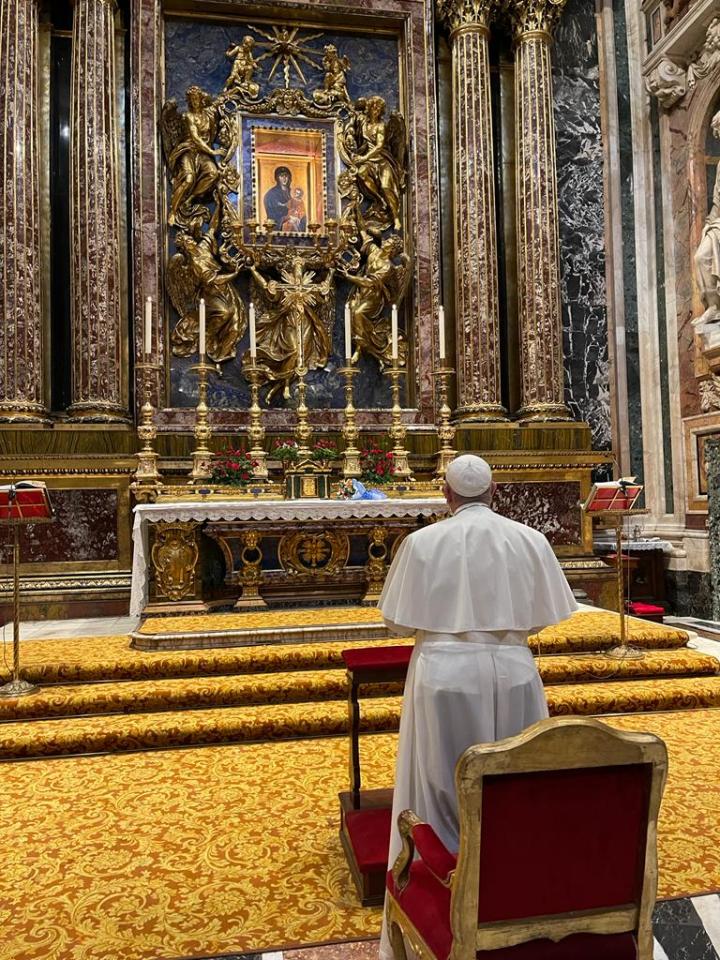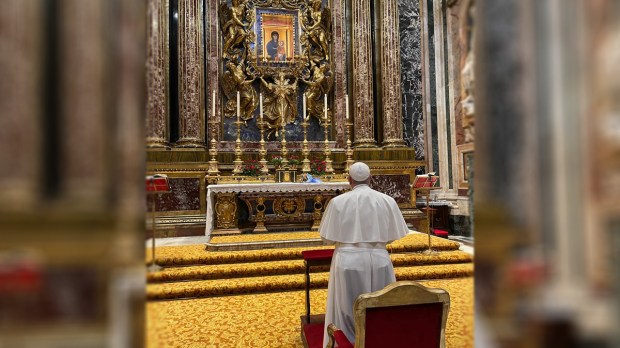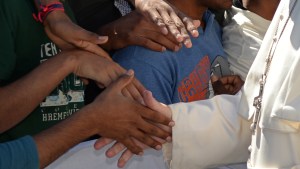
1Migrants and refugees
By choosing to return after five years to the island of Lesbos to meet with refugees, Pope Francis is showing his desire to once again shine the spotlight on the tragedies of immigration. The Pontiff, who from Rome never ceases to call on Europe to consider migrants as people and not numbers, will use this 35th international trip as call to people’s consciences, at a time when migrants are drowning off the coast of Calais or stationed at the Belarusian border.
In Cyprus, he will attend an ecumenical prayer with refugees. There is talk that he may bring a group of migrants back to Italy.
2Ecumenism
In Cyprus as in Greece, the Pontiff will meet with the heads of the local autocephalous churches, Chrysostom II and Hieronymus II. Francis will be the second Pontiff in history to set foot on Cypriot soil, 11 years after the trip of Benedict XVI. In Greece, he will also follow in the footsteps of John Paul II, the first Pope to visit this country since the Great Schism of 1054. At the time, the Polish Pope asked for forgiveness for the wrongs committed by the Catholic Church against the Orthodox.
Despite this gesture, Bishop Theodore Kontidis of Athens confided that there is still “a divergence, sometimes a hostility” between Rome and the Church of Greece – which declined an ecumenical prayer meeting during the trip.
On the other hand, the Orthodox Church of Cyprus could show more signs of openness: a time of ecumenical prayer is planned during a meeting with migrants in Nicosia.
3The political situation of Cyprus
“The Cypriot problem can be resolved through sincere and loyal dialogue between the parties concerned, always taking into account the good of the whole island”: these are the words of Cardinal Pietro Parolin, the Pope’s Secretary of State, pronounced on the eve of the Pontiff’s departure.
Since 1974, the island has been split in two between the Republic of Cyprus, with an Orthodox majority in the south, and the Turkish Republic of Northern Cyprus, with a Muslim majority, recognized only by Turkey. Since the failure of the 2004 Annan reunification plan – rejected by the southern Cypriots – a certain status quo seems to have been established, says a local diplomatic source.
For its part, the Holy See “supports all efforts” that go in the direction of reunification, “the only solution” for peace on the island, explains Matteo Bruni, director of the Holy See Press Office.
Pope Francis is not expected to address the issue from a political point of view, said Archbishop Selim Sfeir, Archbishop of the Maronites of Cyprus, but “express his solidarity with the population.
4The Mediterranean
“Europe cannot ignore the Mediterranean,” said Pope Francis a week before his departure in a video message.
In February 2022, the Argentine pope will once again gather all the bishops of the Mare Nostrum in Florence for a summit with elected officials.
Pope Francis sees the Mediterranean as a basin of exchange, today strongly agitated by the migration issue. Last November 28, he lamented the fate of those who crossed this sea “in search of a land of prosperity and found instead a grave.”
But the theme is also linked to that of ecumenism, explains finally the French Orthodox Carol Saba, who considers that the Mediterranean should “bring together the two lungs of Christianity.”
5The Pope’s health
Eleven days after his return from Athens, the Argentinean Pope will celebrate his 85th birthday on December 17, after a year marked by health concerns. The year 2021 began with the reappearance of his sciatica pain, which forced him to postpone some appointments.
But it was mainly his major colon surgery last July that forced the Pontiff to take a break. “I’m still alive,” he said ironically on a Spanish radio station in early September, dismissing rumors of a resignation due to his health.
Since then, the Bishop of Rome’s agenda has not been empty. But on the eve of the pope’s departure for Cyprus and Greece, the Vatican let slip the idea that the pontiff should take it easy.
The information came out indirectly. While press reports questioned the postponement of the audience between Pope Francis and the members of the French Commission on sexual abuse – scheduled for December 9, three days after the Pope’s return to Rome – Archbishop Eric de Moulins Beaufort sought to clarify matters, explaining that the prefecture of the Papal Household has “the duty to lighten” the Pope’s schedule on his return from his trip.


